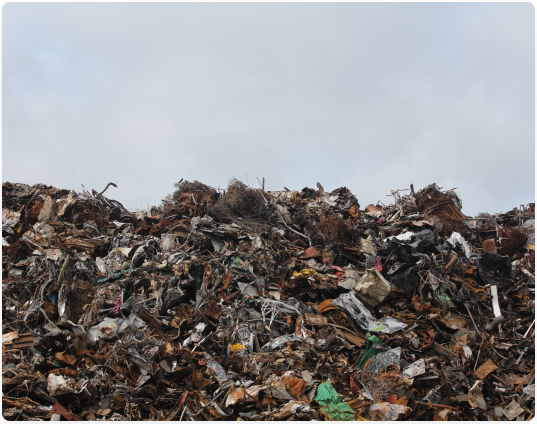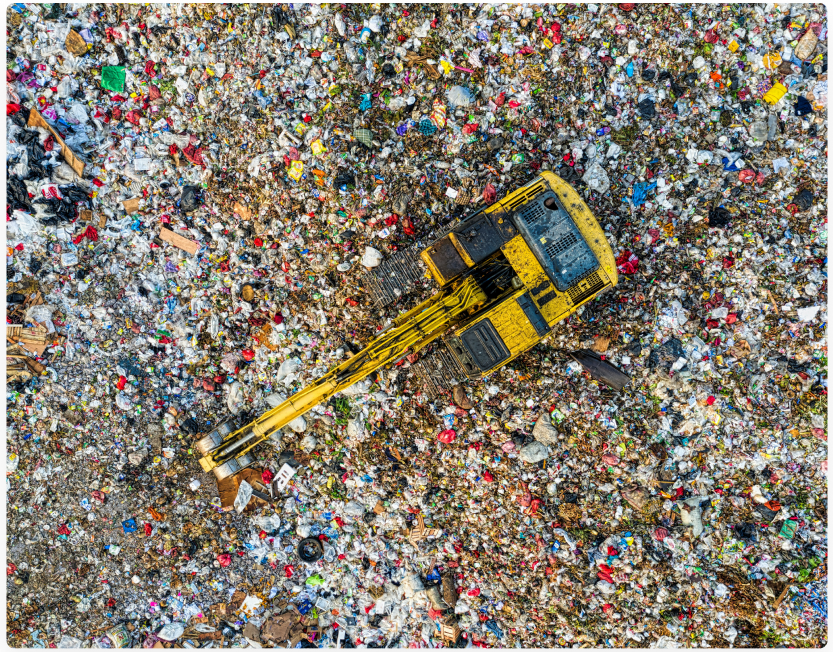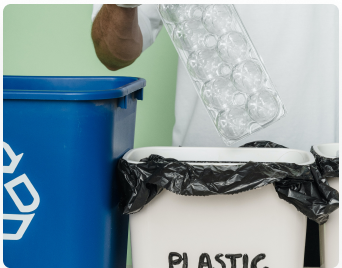NEWS & ARTICLES
Resilient Thinking: Abuja A Growing Menace of Waste
March 5, 2020
5 MIN READ

NEWS & ARTICLES
Resilient Thinking: Abuja A Growing Menace of Waste
March 5, 2020
5 MIN READ

The unfortunate rapid growth of municipal solid waste in the capital city of Nigeria is something worrisome and treacherous to both the environment and population. In Africa this city stands out to be one of the fastest growing in terms of infrastructural development and population growth. It is estimated that the population of the capital city will quadruple by 2050.
One question that comes immediately to our minds is how can we handle the explosive waste growth as effective and efficient as possible. In most developing and developed countries waste management is at the centre, due to its contribution to climate change and several environmental challenges that are detrimental to human. Most cities across the globe spend 20-50% of their annual budget on solid waste management and only 20-80% of the waste is collected.
The orthodox ways of waste management is very weak and out dated in many developing countries, with poor documentation of waste generation rates and its composition, inefficient storage and collection systems, disposal of municipal waste with toxic and hazardous waste, indiscriminate disposal or dumping of wastes and inefficient utilization of disposal site space.

The Improper solid waste management has contributed enormously to underground water contamination and river bodies in Nigeria. The rapid infrastructural development, population increase and changes in consumption pattern have directly (and indirectly) resulted in the generation of enormous amount of waste, ranging from biodegradable to synthetic waste in many cities in Nigeria. Abuja is not an exception, the rapid population growth due to urbanization in the metropolitan areas have resulted in challenges for the state and local environmental protection agencies in the capital to provide an effective and efficient municipal solid waste management although other factors that are similar to developing countries. The bulk of waste in Abuja consists of plastics, paper, glass, metal, tires and other recyclable components. Plastics are the highest waste generated in Abuja due to high purchase of can food, beverages and packaging. According to recent study, a high correlation exists between income level and waste generation quantities; it shows that high-income areas tend to generate more waste than other areas of lower income.
Presently there are about twenty-five private companies contracted with the job and the impact is not felt greatly. The collections in some neighbourhood are periodical while in others it’s absent, some factors are said to be influencing the non-performance: they include lack of vehicle, insufficient manpower, lack of adequate technology and high collection cost. majority of the waste composition consist of materials that can be recycled, but presently no company or AEPB recycle product. Furthermore informal sector and scavengers typically carry out the recycling. Aluminium cans, paper and glasses are sort and some recycle collectors go house to house to purchase recyclables from homeowners. In terms of disposal there is currently no engineered landfill in Abuja. There are four waste dumpsites Ajata, Mpape, Kubuwa and Gosa. Among the four dumpsites in Abuja, Gosa stands out to be one of the promising and well structured with huge potentials in contributing to the energy demand of Abuja but unfortunately Gosa dumpsite is far from reaching its full potentials.
Recent research shows that the impact of leaching has affected the ground water table of Gosa community, the presence of high-level inorganic elements in their water such as mercury; cadmium, arsenic and lead, are causing serious health challenges. Regrettably the poorly managed dumpsite is not just a menace but also opportunity to do business for scavengers, where they sort and sale plastics, metals and others to local recycling companies. The lack of segregation and other systemic woes have cripple waste management approaches to fail miserably in Abuja. There is a pressing need for public and private partnership in making the Gosa engineered landfill project into reality. The perception of the government with respect to public private partnership (PPP) agreement should see private entrepreneurship as partners rather than traditional relationship of contractor and a client or even a competitor.

DECEMBER 29, 2019
Introducing e-waste management
In today’s world you are highly welcome to change your personal computer, cell phone, refrigerator, or for that matter any electronic or electrical gadget...

SEPTEMBER 22, 2019
Electricity utilization patterns for FCT, Abuja
As the population of the world increases, the demand for energy is increasing at a fast pace. Energy is needed for economic development and social welfare, and is one of t...

NOVEMBER 19, 2018
Energy consumption in transport sector in Nigeria
Energy is essential to our way of life. It is consumed by nearly all the activities of our economy, and households consume it every day for our personal comfort and for most of our travel...